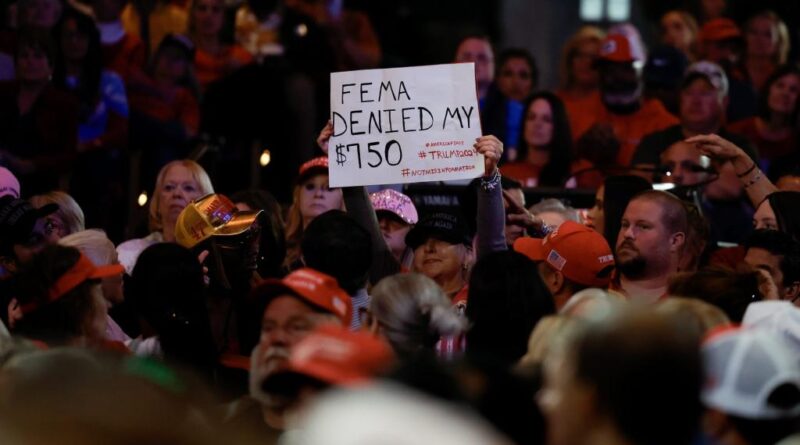Trump’s forthcoming government reforms forewarned by FEMA scandal

President-elect Donald Trump’s initial priority should be to de-weaponize the federal government. A case from Florida exemplifies the necessity for this action.
Previously, discussing federal disaster relief workers purposely denying government assistance to Trump supporters might have been dismissed as a paranoid conspiracy theory.
However, it has happened, leading to the termination of a FEMA supervisor named Marn’i Washington.
Washington instructed FEMA workers in Florida to avoid houses with Trump signs after Hurricane Helene. This directive was emphasized in a memo issued as “best practices” and through verbal instructions.
When Donald Trump raised this concern, The New York Times accused him of spreading misinformation. Trump’s claims of the Biden administration neglecting Republican areas were labeled as false by The Times.
Yet, the truth was evident alongside The New York Times’ failure to rectify their reporting errors, thus contributing to misinformation.
Does this validate the claims of conspiracy theorists? To a certain extent, yes.
If the conspiracy involves high-ranking individuals sending directives to their subordinates in a smoke-filled chamber, the reality differs. While such scenarios do occur, particularly evident in actions like the federal campaign to suppress dissent on social media, the government operates in a subtler manner.
Unique factors like a predominantly Democratic federal workforce, coupled with media narratives painting Republicans in a negative light, empower individuals to act without explicit commands.
It’s doubtful that any FEMA official directly commanded Marn’i Washington to overlook houses with Trump signs. Her actions likely stemmed from personal bias against President Trump and his supporters.
Democrats perceive themselves as valiant defenders of democracy, attributing moral superiority to themselves and justifying extreme measures against opponents as essential for the greater good.
President Trump has expressed intent to dismiss bureaucrats hindering reform efforts and reduce the civil service workforce substantially, which is crucial.
It could be argued that eliminating or restructuring the civil service holds merit, aligning with the constitutional principle that vests executive power solely in the president.
Under the old “spoils system,” abolished with the establishment of the civil service, the president held authority to dismiss any bureaucrat, fostering accountability and political diversity within the federal government.
An administration with regular workforce turnover could mitigate incidents like Washington’s, promoting bipartisan representation and accountability.
The federal government’s current bloated state, coupled with instances of power abuse, underscores the urgency for reform.
President Trump’s second term agenda should prioritize reducing bureaucracy, eliminating unnecessary positions, and enforcing greater accountability within government agencies.
Government responsiveness and accountability are imperative, requiring immediate action.
Glenn Harlan Reynolds is a law professor at the University of Tennessee and the founder of the InstaPundit.com blog.



